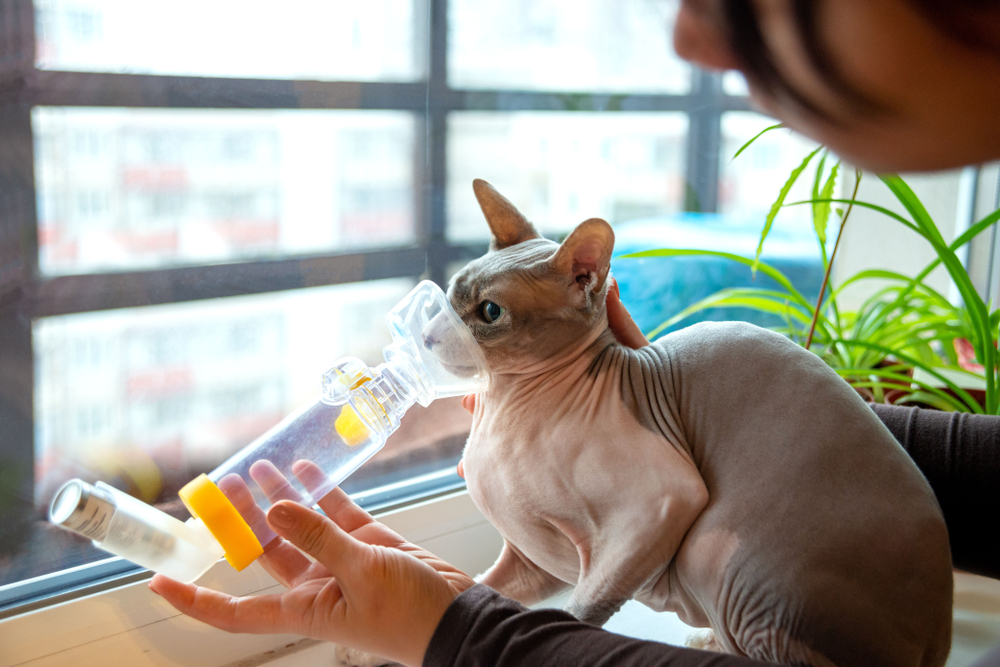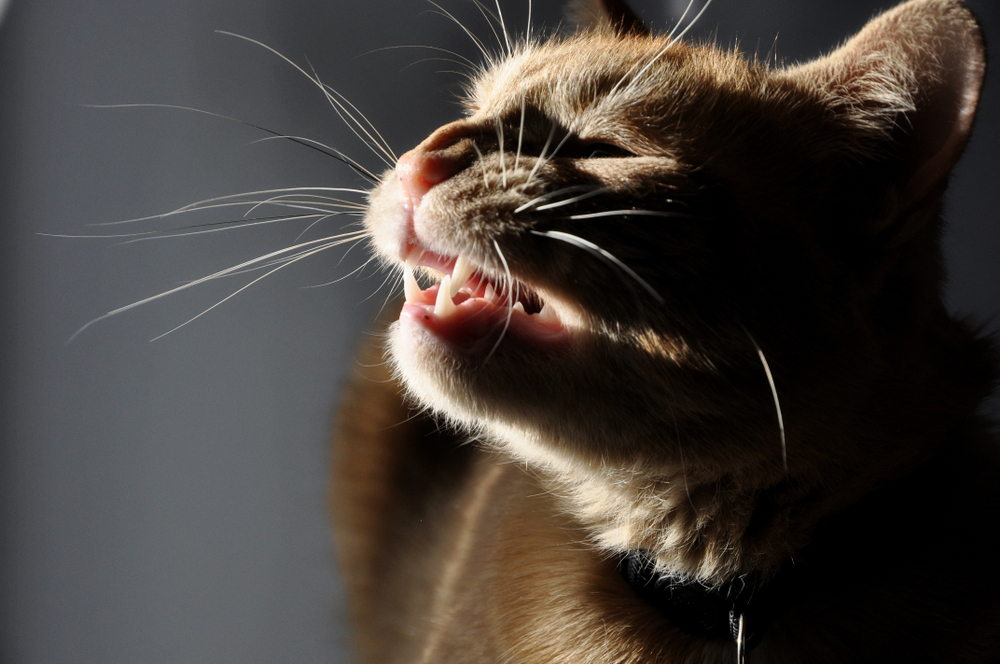Asthma is a chronic respiratory condition that affects cats and people similarly. Asthma occurs when inflammation causes narrowed airways, resulting in breathing difficulties. The condition typically begins in young adulthood but is life-long and requires ongoing management. The Midtown Veterinary Hospital team provides insight into feline asthma causes, diagnosis, and treatment options to protect your cat’s health and well-being.
What causes asthma in cats?
As in people, asthma in cats is likely caused by an allergy, although the exact cause is not entirely understood. The immune system produces cells called eosinophils, which infiltrate the small airways in the lungs and cause chronic inflammation. Some airborne irritants, including pollen, smoke, cat litter dust, or cleaning fumes, can worsen asthma signs or trigger attacks. Additionally, asthmatic cats are more likely to develop respiratory infections, which can also trigger attacks.
Recognizing asthma in cats
Feline asthma can manifest with various signs and symptoms with mild to severe intensity. Some cats experience only occasional difficulties, while others struggle daily. Most affected cats are young adults, and some research suggests the Siamese breed is at higher risk than others. Cat owners should watch for the following asthma signs and bring them to our veterinary team’s attention:
- Dry cough
- Wheezing
- Rapid breathing
- Increased breathing effort
Open-mouth breathing or bluish gums can indicate life-threatening breathing distress from an asthma attack or another respiratory condition. Seek immediate veterinary attention if your cat demonstrates these signs.
Diagnosing asthma in cats
To diagnose feline asthma, our veterinary team must first rule out other conditions, including lungworms, heartworm-associated respiratory disease, or respiratory infections. We will collect a history during the initial visit, perform a complete physical examination, and order diagnostic tests. Initial testing often includes chest X-rays to examine the lungs and airways, screening tests to rule out parasites, and blood work to assess overall health and organ function.
Specialized diagnostic tests may be required if the diagnosis is unclear or your cat doesn’t respond to treatment as expected. Additional testing may include:
- Bronchoscopy — This test uses a tiny camera to visualize the airways directly.
- CT scan — This test allows 3-D X-ray visualization of the chest and airways.
- Allergy testing — This blood test can help identify specific allergens that may trigger your cat’s asthma.
Treating and managing asthma in cats

While feline asthma is not curable, the disease is manageable with long-term treatments and lifestyle changes. Daily oral or inhaled steroid medication—administered using a special aerosol chamber fitted for a cat’s face—helps control the inflammation that causes asthma. Some cats may also need “rescue” inhalers or injectable medications to open the airways during active attacks. For cats who cannot take steroids or refuse inhalers, we may use alternative treatments, such as cyclosporine or allergy immunotherapy, to suppress the immune system and quell systemic inflammation.
Asthmatic cats have sensitive respiratory systems and require lifestyle changes to minimize attacks. Keeping cats indoors, using air purifiers, and avoiding harsh fumes or scents are essential. Switching to a dust-free litter is also advised to keep asthmatic cats happy, healthy, and comfortable.
Feline asthma can flare up periodically and your cat may require veterinary attention between routine visits. Regular check-ups are essential to monitor your cat’s condition and provide vaccines, parasite control, and other preventive care. Keeping your cat healthy with wellness care reduces physical stress, which helps to minimize the risk of attacks.
Feline asthma is a serious condition, but prompt diagnosis and ongoing management can help your cat breathe easier. Asthmatic cats require frequent check-ups that allow our Midtown Veterinary Hospital team to adjust therapy and monitor for disease progression. Contact us if your cat shows asthma signs or to schedule your next routine wellness visit.






Leave A Comment